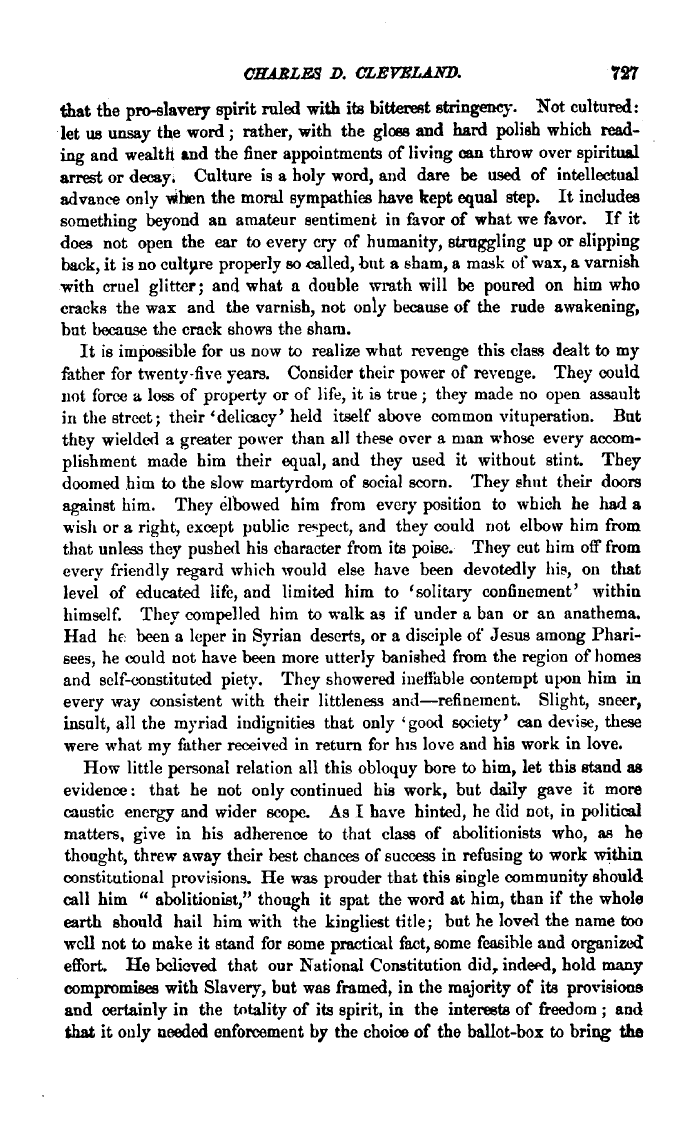 |
||||
 |
||||
| CHAJRLES D. CLEVELAND. 727 that the pro-slavery spirit ruled with its bitterest stringency. Not cultured: let us unsay the word; rather, with the gloes and hard polish which reading and wealth »nd the finer appointments of living can throw over spiritual arrest or decay; Culture is a holy word, and dare be used of intellectual advance only •flihen the moral sympathies have kept equal step. It includes something beyond aa amateur sentiment in favor of what we favor. If it does not open the ear to every cry of humanity, struggling up or slipping back, it is no cultjire properly so called, tut a sham, a mask of wax, a varnish with cruel glitter; and what a double wrath will be poured on him who cracks the wax and the varnish, not only because of the rude awakening, bat because the crack shows the sham. It is impossible for us now to realize what revenge this class dealt to my father for twenty-five years. Consider their power of revenge. They could not force a loss of property or of life, it is true; they made no open assault in the street; their'delicacy'held itself above common vituperation. Bat they wielded a greater power than all these over a man whose every accomplishment made him their equal, and they used it without stint. They doomed him to the slow martyrdom of social scorn. They shut their doors against him. They elbowed him from every position to which he had a wish or a right, except public respect, and they could not elbow him from that unless they pushed his character from its poise. They cut him off from every friendly regard which would else have been devotedly his, on tfiat level of educated life, and limited him to 'solitary confinement' within himself. They compelled him to walk as if under a ban or an anathema. Had he been a leper in Syrian deserts, or a disciple of Jesus among Pharisees, he could not have been more utterly banished from the region of domes and self-constituted piety. They showered ineffable contempt upon him in every way consistent with their littleness and—refinement. Slight, sneer, insult, all the myriad indignities that only 'good society' can devise, these were what my father received in return for his love and his work in love. How little personal relation all this obloquy bore to him, let this stand as evidence: that he not only continued his work, but daily gave it more caustic energy and wider scope. As I have hinted, he did not, in political matters, give in his adherence to that class of abolitionists who, as he thought, threw away their best chances of success in refusing to work within constitutional provisions. He was prouder that this single community should call him " abolitionist," though it spat the word at him, than if the whole earth should hail him with the kingliest title; but he loved the name too well not to make it stand for some practical fact, some feasible and organized effort. He believed that our National Constitution did,, indeed, hold many compromises with Slavery, but was framed, in the majority of its provisions and certainly in the totality of its spirit, in the interests of freedom ; and that it ouly needed enforcement by the choice of the ballot-box to bring the |